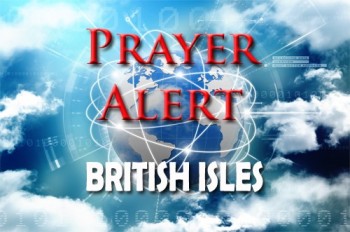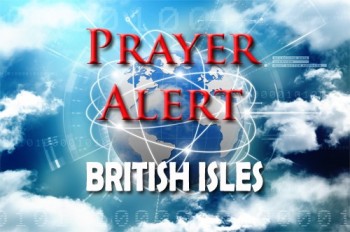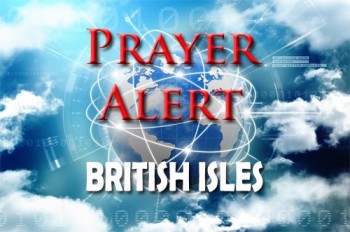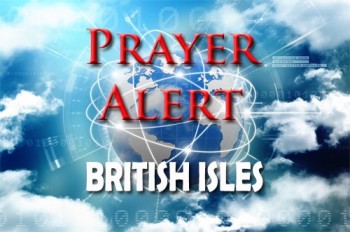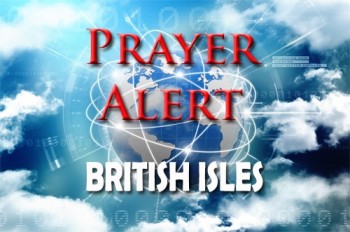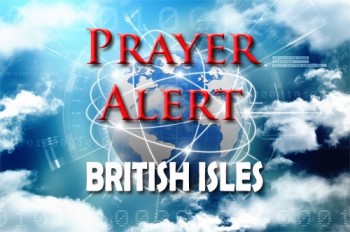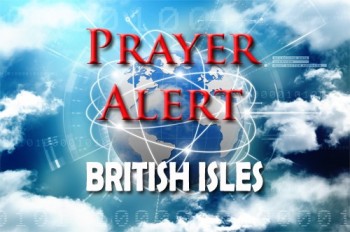Displaying items by tag: Politics
‘Let the healing begin’
1 Timothy 2:2 tells us to ‘pray for all who are in high positions’. Boris Johnson’s first speech after the election urged ‘everyone, on either side of an increasingly arid three and a half year argument, to find closure and let the healing begin’. We can pray that his words will be a prophetic declaration, and the division and pain will give way to healing and restoration of our nation. After accepting the Queen's invitation to form a government, he spoke of a ‘one-nation conservative government, acting for everyone in the UK’. Pray for the new legislation which will pave the way for the UK leaving Europe on 31 January. Pray for the future trade and security talks that will begin almost immediately.
Quakers challenge the new government
Quakers in Britain are challenging Boris Johnson’s new government to give priority to its promise to take action on climate breakdown. They are urging him to ensure that the economic transition puts the most marginalised people first. They want the government to create a humane and fair immigration system and a culture of welcome. They will encourage the Conservative party to focus on its manifesto pledges on crime prevention and rehabilitation, rather than on longer sentencing, to transform justice; and also to promote peace and nonviolence across the UK and abroad. Quakers want to work with the new government to build a fairer, greener society, and encourage politicians from all parties to come together in the national interest. See also @PoliticalQuaker.
280,000 homeless in England this Christmas
Shelter revealed that 135,000 children are homeless in Britain, one in 200 people in England are without a settled home, and 280,000 people are recorded as homeless. However, the charity pointed out that these statistics could be the tip of the iceberg, with hidden homelessness and rough sleeping difficult to document accurately. The scale of the challenge that Boris Johnson’s new government must face is daunting. Pray for government action to address the lack of social homes. A spokesman for the ministry of housing said, ‘Everyone should have somewhere safe to live, and councils have a duty to provide accommodation to those who need it, including families with children’. There are 1,450 Big Issue sellers working on the streets each week. Homelessness blights lives, leaving lasting imprints of trauma, and many are only days away from becoming homeless.
Intercessor Focus: new ministers, new season
We do not know who will be ministers in Boris Johnson’s new cabinet, but we can pray that it will be God who develops and reshapes it and its various offices. May each department reflect His virtue and righteousness. In these extraordinary days of change, ask Him to use and direct the ministers who will organise the UK’s exiting the EU, those supporting businesses, and those appointed to fine-tune the NHS, energy, education, the environment, and rural affairs. May all internal developments re-shape our economic structure and trading foundations with justice and fairness. May all they do be fit for purpose in this season of alterations and adjustments. Please pray that the staff of the Crown Prosecution Service, the Serious Fraud Office, and the Government’s Legal Department may hold firm to truth, humility and justice as they provide advice and support to the Home Office.
Catholic politician sues Lib Dems
Just days after Robert Flello, a practising Roman Catholic, was selected to stand for the Lib Dems for this week's general election, he was stood down and told by party officials that his views on abortion and same sex marriage, shared on social media, were ‘not those that would be expected of a liberal’ and it was therefore ‘not appropriate’ for him to represent them. Flello said, ‘Initially the Lib Dems told me that they were deselecting me for my views, then during the following week they gave me all sorts of other reasons and suggested that I retweeted a very aggressive tweet. But I have not done those things. So I can only conclude, in fact I'm absolutely convinced, that they are discriminating against me on the grounds of my faith.’
Britain needs its own report on Russian ‘interference’
Investigative journalists who explored Russian influence on US politics say Britain’s political system is also compromised, stating that it is time our institutions and media woke up to that fact. In 2016 the UK and US were targets of Russian efforts to swing votes to weaken the alliances that had constrained Putin’s ambitions for the EU and Nato. Many believe Conservative-leaning media in the UK and US see little mileage in exposing meddling that helped their own side. The Mueller report found that Russia engaged in a sweeping and systematic campaign to elect Trump. Britain’s official response to meddling accusations was largely denial. Consumed by bitter Brexit divisions and public spending, it took longer than it should have for parliament to conduct an investigation of Russian penetration of British politics. Their findings are suppressed until after the election. Meanwhile UK media has started to look into these issues, shedding light on the actions of Russian-backed groups.
Iraq: Christmas celebrations cancelled
Since the protest movement began in October, 400+ have died, twelve of them security personnel. Over 17,000 people have been injured. ‘The situation is a disaster, with weapons in every corner’, said the Chaldean archbishop of Basra. ‘As a church, we are close to young people in the streets, providing them with food and shelter.’ But violence has forced his diocese to suspend all such pastoral activities. The Chaldean church called for three days of prayer and fasting, and out of respect for the dead and in solidarity with all the injured, Patriarch Louis Raphael Sako cancelled all public and church-based celebrations of Christmas. As the Church in Iraq trades tree decorations and holiday receptions for prayers of intercession, let us pray for the current government’s corrupt structure to end and for the protesters to achieve the dissolution of parliament and widespread reforms. May hope and prosperity enter Iraq in 2020, and may Iranian ballistic missiles and US troops and defence systems leave. See
Hong Kong: stalemate
On 24 November we praised the district election results which swept aside pro-establishment candidates and installed democratic majorities in 17 out of 18 districts, a stunning reversal attributed to the months of protests and voters’ deep dissatisfaction with the government. But now, three weeks later, prayer is still needed for a commission of inquiry into allegations of police brutality. Chief executive Carrie Lam is in no haste to satisfy any of the demands, which she has repeatedly dismissed as unrealistic. Several opinion polls indicate that most Hong Kong citizens support an independent inquiry, but she insists on leaving all questions about police conduct during the protests to an independent police complaints council. Beijing is in no rush to fix the problem, stating that Hong Kong will always be a part of China, and urges them to be more like their Macau counterparts in making the ‘one country, two systems’ principle work. Commentators warn of an even bigger political crisis if deep-rooted grievances are not addressed.
An election prayer
Father, thank You for all you have done for us throughout this year. Even when things don’t go our way, may we still rejoice in Your faithfulness and provision in our lives. We pray that You will build our government and watch over the UK. ‘Unless the Lord builds the house, the builders labour in vain; unless the Lord guards the city, the watchman stays awake in vain.’ (Psalm 127:1) Lord, we ask You to build our nation according to Your template and guard us from evil. Father, thank You for being our defender and ever-present help in our times of need. We ask You to protect Your children involved in election campaigning in the coming week, keeping them safe from those who would wish to harm them. ‘Those who trust in the Lord are like Mount Zion, which cannot be shaken but endures for ever. As the mountains surround Jerusalem, so the Lord surrounds his people both now and for evermore.’ (Psalm 125:1)
Georgia: anti-corruption activism
When the ruling party, Georgian Dream, backtracked on a promise to transition to a fully proportional parliamentary system before the 2020 elections, thousands of citizens protested, demanding a progressive electoral reform. But such protesters face smear campaigns and accusations of bias - typical of the intimidation tactics used in such situations. This also happened recently in Brazil. Those who denounce corruption and human rights abuses are often the target of disinformation campaigns, with their reports and findings dismissed as ‘fake news’. Anti-corruption activism relies strongly on trust in independent media. The use of social media and the impact of fake news is a real threat for the work of organisations like Transparency International (TI). But fake news is not always easy to detect and spreads rapidly. What can be done? In Georgia, for example, coordinated accusations against TI through anonymous Facebook posts were recently detected, labelled and debunked by another civil society group.
